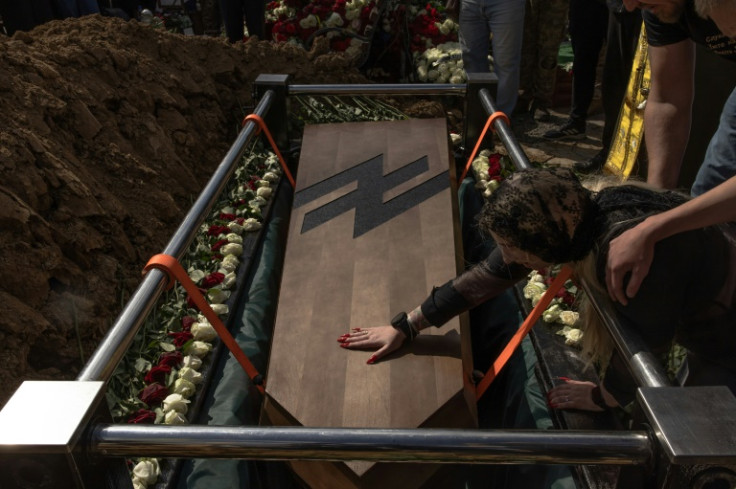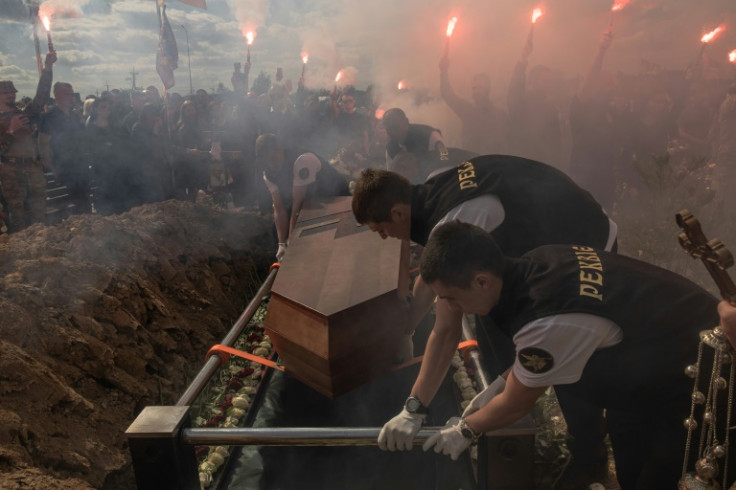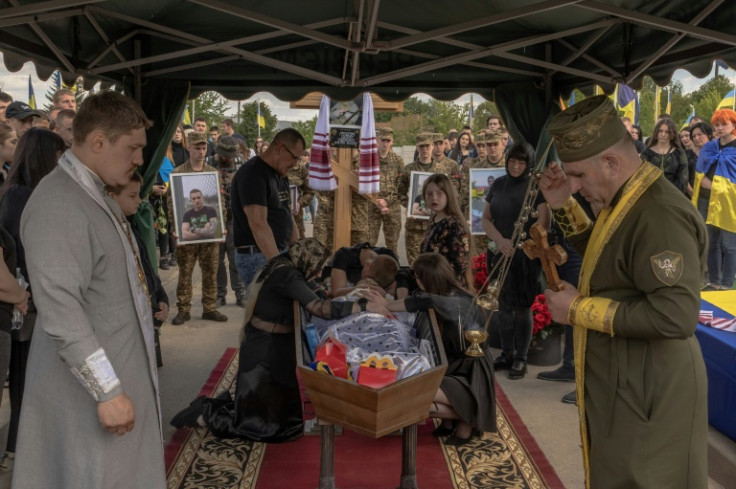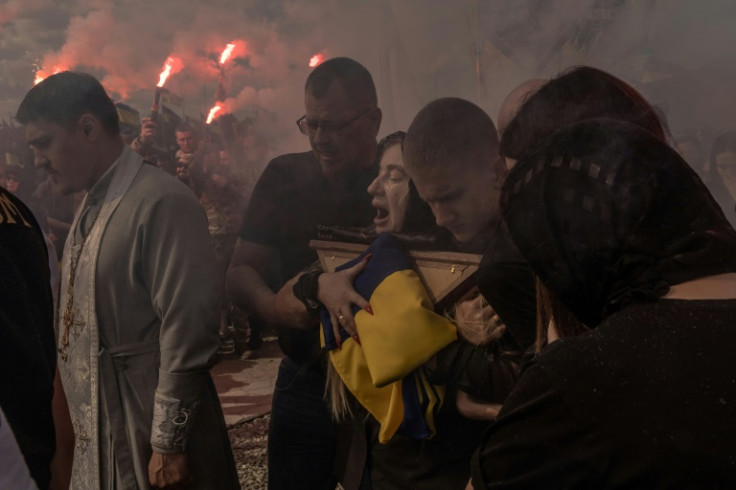
In a cathedral in the central Ukrainian city of Vinnytsya in front of hundreds of mourners, Nazary Gryntsevych's mother and girlfriend rested their heads on the side of his open coffin.
Known by the call sign Grinka, the soldier had become a national hero and symbol of defiance against the Russian invasion.
"This is a guy who gave his youth for us, he gave his life away for us to live under peaceful skies," said 17-year-old Vitaliy Shermak, who came to pay his respects.
Gryntsevych was one of the youngest of the "Azovstal Defenders," the Ukrainian troops who command cult status in the country for holding out at the vast Azovstal steelworks in the southern port city of Mariupol, long after Moscow's troops had destroyed then captured the rest of the city.
After surrendering in May 2022, Gryntsevych spent a year in Russian captivity as a prisoner of war before he was eventually released in an exchange deal.
Freed, he was soon back on the battlefield -- a decision that cemented his iconic status for many Ukrainians.
He was killed in combat on May 6, aged 21 -- a loss that comes with Ukraine struggling on the battlefield, unable to recruit enough soldiers for a war effort now dragging into its third year.
Some at the funeral said they had been inspired by Gryntsevych's example to take up arms.
"He became the kind of person I aspire to be, and all young people should aspire to be like him," said the 17-year-old Shermak.
He told AFP he would join the armed forces after he turns 18.
Just ahead of his own 18th birthday, Gryntsevych had left home, telling his mother he was going to pick strawberries in Poland.
He actually went to a youth fighting course with the Azov battalion.
The unit had been fighting Moscow-backed militias in the eastern Donbas region since 2014.
The group has far-right origins and has been accused by Moscow of harbouring neo-Nazis.
It rejects the claims as Russian propaganda and is idolised in Ukraine, a status elevated by its weeks-long defence of the Azovstal plant in Mariupol while under Russian seige.
Gryntsevych shot to prominence at the time with a simple message honouring his mother and his country.
"Love your mum, eat your porridge, and love Ukraine," he said in a now-cult video.
In the cathedral on Friday, many wore t-shirts emblazoned with the phrase.
His mother, whose long blond hair was covered by a black lace scarf, rested her face on the side of his open coffin.
She stood still for most of the liturgy, only raising her hands to caress his face.
At the end of the service, fellow soldiers raised the coffin to be taken to the city's football stadium for another tribute and then onto a cemetery.
Mourners lit flares and Gryntsevych's mother placed her hand on the coffin as it was lowered into the ground.
The soldier was first introduced to the Azov Brigade -- long famous among football fans -- through the sport.
Under the bright spring sun, tearful girls holding hands and carrying roses streamed alongside teenage men with buzz cuts and elderly women.
After paying her respects, Margaryta Chmyrka, 16, stood crying.
"I know another guy who died, he was even younger than 21... It was very difficult. A lot of young guys are fighting," she said.
She first heard about Gryntsevych when he was in captivity.
Russian state media had published an interview with him, in which he appeared defiant even behind bars.
The footage earned him even more praise back home in Ukraine.
"He was a hero... No one should forget about such people, and always remember them," Chmyrka said.
Many other military men and women attended the funeral.
They included other former prisoners of war, such as Sviatoslav, a 28-year-old artillery soldier in the Azov brigade.
He met Gryntsevych when he joined the regiment.
"He arrived already very active and ideologically driven, he always wanted to learn," Sviatoslav, who declined to give his surname, said.
"He did very adult things despite a young age."
That experience -- and the death of Gryntsevych -- have only hardened his resolve.
"We have a sacred duty to our country, to our brothers in arms who died and who were taken prisoners," he said.
"We need to continue this task and kick out the evil."









